Boldly assigning private enterprises to carry out major national projects is one of the solutions emphasized by Associate Professor, Dr. Tran Hoang Ngan, National Assembly delegate, to make the private economy a driving force for national development.
Boldly assigning private enterprises to carry out major national projects is one of the solutions emphasized by Associate Professor, Dr. Tran Hoang Ngan, National Assembly delegate, to make the private economy a driving force for national development.
 |
| Associate Professor, Dr. Tran Hoang Ngan, National Assembly delegate. |
Sir, the private sector has been asserting its increasingly important role in the Vietnamese economy, but there are still many barriers facing this sector. What do you think about the determination of senior leaders in promoting the private sector to become an important driving force of the economy?
At this moment, we have a strong belief that the country will enter a new era - the era of national development. The Vietnamese economy must be independent, self-reliant and self-reliant. To do that, we must rely on the people's strength, on the private economy, which we often call "people's economy".
The private economy has continuously made important contributions to the country over the years. Up to now, this sector is still one of the important driving forces, contributing up to 60% of total social investment capital, more than 30% of the state budget; creating more than 40 million jobs, accounting for more than 82% of the total workforce in the economy...
This year, if Vietnam’s economy grows by over 8%, the size of the economy will reach about 500 billion USD, equivalent to 12.5 quadrillion VND. To achieve that growth, it is necessary to mobilize investment capital of about 34% of GDP, or about 174 billion USD. Of this, the state sector contributes about 36 billion USD, and the private sector contributes about 96 billion USD.
So what to do to get those numbers, sir?
This is a very difficult problem. In Ho Chi Minh City, to grow by 10%, the city's GDP will reach about 2 million billion VND, social investment capital needs about 660,000 billion VND, of which the private sector contributes 420,000 - 450,000 billion VND.
Citing these figures, we can see that the private economy must be the driving force, the lever to promote the development of the Vietnamese economy in the new era. But what we want is for the private economy to be even bigger, to develop more strongly, to become large corporations that can compete in the international market. For example, Ho Chi Minh City currently has 64 large enterprises out of a total of 278,000 enterprises (accounting for 0.02%), but they decide to collect up to 44% of the budget.
Therefore, there should be separate criteria to support each group of businesses. Large businesses need large policies, and at the same time, there should be separate policies for businesses to solve employment for workers.
What is the policy to support the development of the private economic sector that you want to mention?
We must have breakthrough policies that are stronger and faster. The current institution, as the General Secretary has pointed out, is still the biggest bottleneck that needs to be focused on and resolved. The Government and the National Assembly have worked together, day and night, and resolutely implemented reform measures to build a synchronous, stable, and transparent institution that ensures fairness among economic sectors.
Along with that, it is necessary to promote administrative reform and apply digitalization to support businesses in reducing time costs in administrative procedures.
But the most important thing, which I think the private economy really needs, is a synchronous infrastructure system, including hard infrastructure and soft infrastructure, especially connecting transport infrastructure, energy and data.
Currently, we have been taking action in investing in infrastructure, but we need to do it faster, with new and more modern methods. However, the problem of resources for public investment is a big challenge.
In Ho Chi Minh City, in the period of 2016 - 2020, public investment is about 20,000 billion VND per year. In the period of 2021 - 2025, public investment is about 50,000 billion VND per year, with 100,000 billion VND in 2025 alone. The plan for the period of 2026 - 2030 is from 120,000 to 150,000 billion VND per year.
Thus, in investing in infrastructure, we must increase the number of orders for private economic units so that they can participate in the process of investing in building socio-economic infrastructure, as the Prime Minister mentioned about investing in high-speed railways, urban railway systems, coastal roads, expressways, etc. For all those large projects, we must mobilize resources from the private economy.
In addition, there must be support policies so that private enterprises can immediately apply scientific and technological achievements in innovation as well as digital transformation, related to tax policies and interest rate policies, so that enterprises can boldly invest in this field. Many solutions need to be implemented more quickly in the coming time.
Among the above solutions, the mechanism for ordering enterprises to participate in large-scale project investment is receiving much attention. Could you elaborate on how this mechanism will benefit the macro-economy and help enterprises grow?
At the Government Standing Committee meeting with enterprises on February 10 this year, the Prime Minister gave an example that with high-speed railways, we can order Hoa Phat to build the rails, Thaco to build the train cars, and Deo Ca to dig the tunnel. I see that the Prime Minister has put his full trust in private enterprises, because when you place an order, you must have trust.
Trust cannot be built in a day, but over many years. This shows that over time, private enterprises have grown. However, that growth is still modest.
During the period 2001 - 2008, Vietnam's economy grew rapidly, but the macro economy was unstable due to a large trade deficit, leading to currency instability, dollarization and gold-ization. If we boldly assign large projects to domestic enterprises, we can limit the trade deficit, take advantage of domestic raw materials and materials and reduce dependence on foreign countries.
Without a comprehensive solution, in the coming time, Vietnam may fall into a state of hot growth, increasing public debt, uncontrolled money supply and leading to macroeconomic instability. Therefore, there needs to be solutions that go hand in hand with macroeconomic stabilization and inflation control to maintain a stable interest rate level, supporting businesses to develop sustainably.
In addition to private enterprises, family and individual enterprises are also potential forces. The problem is how to make them grow. What is your opinion on this issue?
I think that individual businesses are also a business force and we call them micro-enterprises. We must support them to operate more professionally, help them grow bigger, and make them feel that if they continue to be small businesses, they will lack opportunities to access investment projects.
Thus, there must be support policies for business households to transform into enterprises. These policies can be tax policies, procedural support, accounting advice, and business household activities to develop into enterprises... From there, it will create a strong motivation for business households to transform into enterprises.
Source: https://baodautu.vn/trao-co-hoi-cho-doanh-nghiep-tu-nhan-tham-gia-du-an-lon-d257701.html


![[Photo] National Assembly Chairman works with leaders of Can Tho city, Hau Giang and Soc Trang provinces](https://vphoto.vietnam.vn/thumb/1200x675/vietnam/resource/IMAGE/2025/5/11/c40b0aead4bd43c8ba1f48d2de40720e)


![[Photo] Discover the beautiful scenery of Wulingyuan in Zhangjiajie, China](https://vphoto.vietnam.vn/thumb/1200x675/vietnam/resource/IMAGE/2025/5/11/1207318fb0b0467fb0f5ea4869da5517)
![[Photo] Prime Minister Pham Minh Chinh chairs the fourth meeting of the Steering Committee for Eliminating Temporary and Dilapidated Houses](https://vphoto.vietnam.vn/thumb/1200x675/vietnam/resource/IMAGE/2025/5/11/e64c18fd03984747ba213053c9bf5c5a)
![[Photo] The moment Harry Kane lifted the Bundesliga trophy for the first time](https://vphoto.vietnam.vn/thumb/1200x675/vietnam/resource/IMAGE/2025/5/11/68e4a433c079457b9e84dd4b9fa694fe)
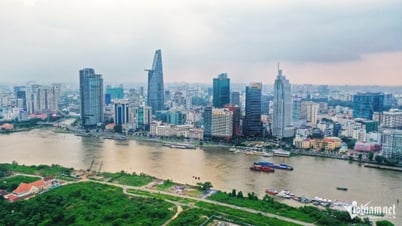

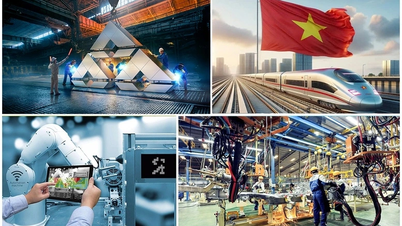












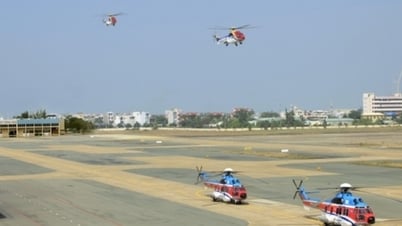
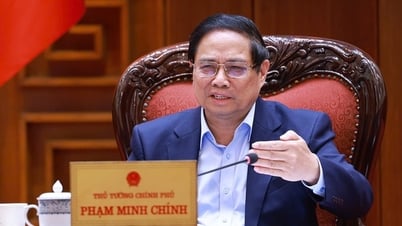









































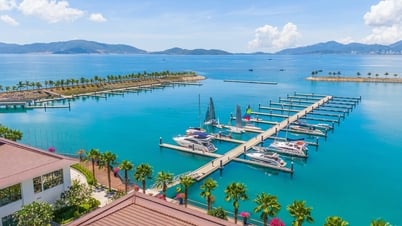

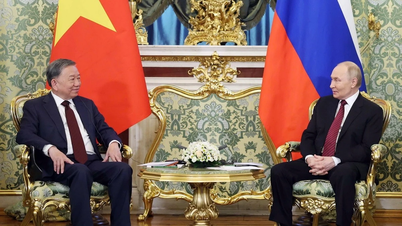











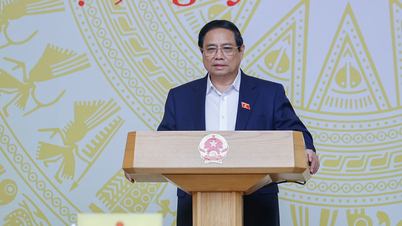

















Comment (0)